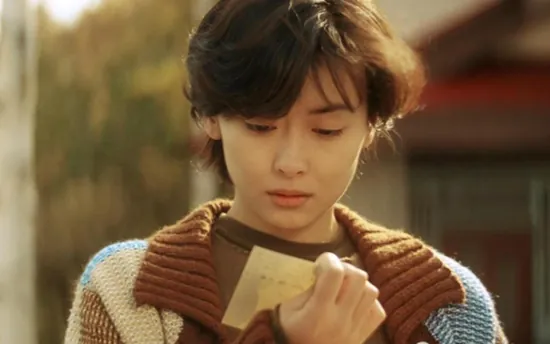
The Heartwarming Return of 'Love Letter' Resonates with Korean Audiences After Tragic Passing of Lead Star
2025-01-10
Author: Sarah
Overview
In a touching revival, the beloved Japanese film "Love Letter," originally released in 1995, is once again capturing the hearts of Koreans. Since its rerelease on January 1, the film has drawn over 50,000 viewers in just nine days, proving that its emotional story still resonates deeply with audiences today.
Impact of Miho Nakayama's Passing
The renewed interest in "Love Letter" comes in the wake of the passing of its lead actress, Miho Nakayama, who tragically died last month. Industry experts suggest that her untimely death has cast a nostalgic glow over the film, prompting fans—both old and new—to return to this classic masterpiece. “This film holds a special place in the hearts of many, and its quotes and scenes remain deeply embedded in popular culture," commented a local film industry official.
Cultural Significance of the Film
Directed by renowned filmmaker Shunji Iwai, "Love Letter" was one of the first Japanese films to make waves in Korea, attracting over 1.15 million viewers when it was first released in 1999. The movie is celebrated not only for its poignant narrative but also for its breathtaking depiction of the snowy landscapes of Hokkaido, coupled with a compelling soundtrack. It remains a gold standard for non-animated Japanese cinema in Korea, with iconic quotes like "Ogenki Desu Ka? Watashi Wa Genki Desu" ("How are you? I'm doing well") still fondly remembered by fans.
Plot Summary
The plot follows Nakayama's character as she grapples with the loss of her fiancé. Unable to move on, she pens a letter to his former address, only to receive a response from his classmate, also played by Nakayama. This intriguing twist creates an emotional journey that has resonated across generations.
Box Office Success
The film garnered significant box office attention, with 14,957 viewers on its opening day, landing it in 11th place nationally, according to KOBIS (Korea Box Office Information System). It has since maintained a solid presence in the box office rankings, fluctuating between 10th place and just outside the top tier.
Streaming and Anniversary Recognition
In recognition of its 30th anniversary in Japan, the local streaming service Watcha reintroduced "Love Letter" for this special rerelease. The platform, known for its rich library of cinematic gems, highlighted that this film indeed stirs memories for many viewers, particularly during the winter months. To enhance the viewing experience, Watcha incorporated vertical subtitles aimed at highlighting the film's emotional essence.
Viewer's Sentiment
Hyun In-chul, a long-time admirer of the film, expressed his feelings: “Hearing about her passing was heartbreaking. The memories of watching her in 'Love Letter' during my childhood are so vivid. I felt compelled to watch it again.” His sentiments mirror those of many who are revisiting the film, adding a layer of poignant nostalgia as it continues to touch lives even in its rerelease.
Conclusion
As "Love Letter" captures the spirit of longing and remembrance, it stands not just as a film, but a heartfelt tribute to the enduring connection between cinema and its audience, proving that love—like great art—never truly fades away.

 Brasil (PT)
Brasil (PT)
 Canada (EN)
Canada (EN)
 Chile (ES)
Chile (ES)
 Česko (CS)
Česko (CS)
 대한민국 (KO)
대한민국 (KO)
 España (ES)
España (ES)
 France (FR)
France (FR)
 Hong Kong (EN)
Hong Kong (EN)
 Italia (IT)
Italia (IT)
 日本 (JA)
日本 (JA)
 Magyarország (HU)
Magyarország (HU)
 Norge (NO)
Norge (NO)
 Polska (PL)
Polska (PL)
 Schweiz (DE)
Schweiz (DE)
 Singapore (EN)
Singapore (EN)
 Sverige (SV)
Sverige (SV)
 Suomi (FI)
Suomi (FI)
 Türkiye (TR)
Türkiye (TR)
 الإمارات العربية المتحدة (AR)
الإمارات العربية المتحدة (AR)